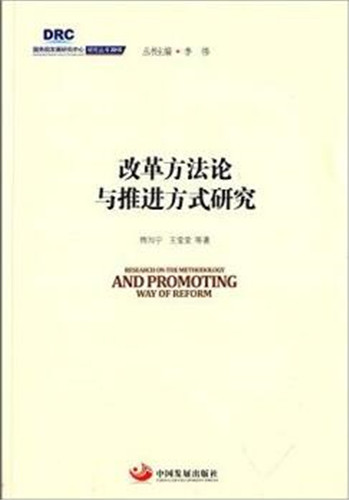Research on the Methodology of Reform and Advancing Mode
2016-03-10

Wei Jianing and Wang Yingying
The book Research on the Methodology of Reform and Advancing Mode is written by Wei Jianing and Wang Yingying. This book made an analysis of the new round of reform respectively from the perspective of the theoretical basis of the reform, evaluation of the current reform, mode for advancing future reform and supporting mechanism, etc, which are regarded as valuable reference for making policy options. This book illustrated six important reforms in Chinese history, including Shang Yang’s reform during the period of Warring States (475-221 B.C.), Wang Anshi’s reform in Northern Song Dynasty, Zhang Juzheng’s reform during the middle-to-later period of Ming Dynasty, the Reform Movement and the New Deal in the late Qing Dynasty and postwar Taiwan reform. It analyzed as typical cases the reforms conducted respectively in China, the United States, Britain and the Soviet Union in the 1980s. On this basis and in light of the assessment of the past 10 years’ reform and the present reform in China, it put forward the roadmap for China’s future reform, advancing mode and mechanism as well as supporting mechanism adaptable to the new round of reform. The main contents of this book are as follows. Part One: Some typical cases of methodology-based reforms at all times and in all countries. Chapter 1: Relevant theories relating to reform methodology. Section 1: A comprehensive review of research papers on reform methodology in China. Section 2: Institutional changes and reform methodology in China. Section 3: Mechanism-based theory design and its application in China’s reform. Chapter 2: Six important reforms in China’s history. Section 1: Shang Yang’s reform in the period of Warring States: How to win people’s trust through Legalists’ reform. Section 2: Wang Anshi’s reform in Northern Song Dynasty: A comprehensive reform with mixed reception. Section 3: Zhang Juzheng’s reform in the Ming Dynasty: Tax reform amidst social crisis. Section 4: Reforms in the late Qing Dynasty: The Reform Movement and the New Deal. Section 5: Reforms in Taiwan after 1949: Tough decisions made at stake. Chapter 3: Reforms in some major countries in the world in the 1980s. Section 1: Mrs. Thatcher’s reform: Remedying “British disease” with an iron hand.














